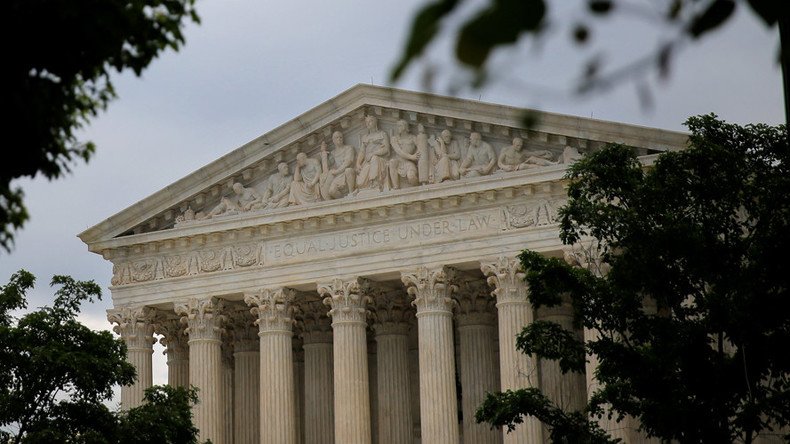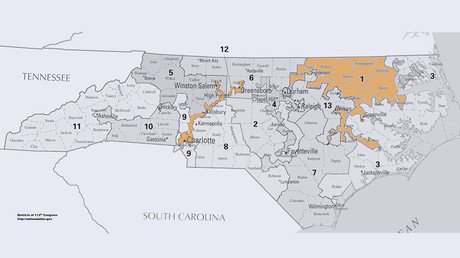Supreme Court tosses GOP challenge in racial gerrymandering case

The Supreme Court has thrown out a case centered on a Virginia congressional district which was allegedly packed with black voters. GOP members of Congress argued that the newly-drawn maps hurt their chances of re-election to the US House of Representatives.
In a unanimous ruling, the Supreme Court stated that the Republican lawmakers did not have the standing to sue over the issue.
The legal battle dates back to 2013, when voters sued the state of Virginia over newly-drawn maps which they claimed consolidated African-American voters into one district – a move they argued was unconstitutional and represented racial gerrymandering. The net effect was that Virginia’s 3rd district was filled heavily with black voters who tend to lean towards Democrats, while the surrounding districts featured fewer black voters and became friendlier territory for Republicans.
Prison-based gerrymandering unconstitutional, federal judge ruleshttps://t.co/VtVSOe0bNqpic.twitter.com/1ElCWKPfq0
— RT America (@RT_America) March 22, 2016
As that lawsuit unfolded, a three-judge District Court ruling agreed with voters and declared the redrawn districts to be unconstitutional. The state, led by Democratic Attorney General Mark Herring did not appeal the ruling, and the court set a deadline for lawmakers to draw the districts once again. State officials never did so, and the court then appointed its own official to redraw the districts
Afterwards, the black voter population in the 3rd district – currently held by Democrat Bobby Scott – was reduced while it was increased in the 4th district, which is currently held by Republican Randy Forbes. He decided to leave the district and run in the 2nd district this year.
Forbes and other GOP lawmakers appealed to the Supreme Court, arguing that the originally drawn map that was ruled unconstitutional should be reinstated because the new maps hindered their re-election chances.
In the majority opinion written by Justice Anthony Kennedy, though, the high court noted Forbes’ decision to leave the 4th district altogether and ruled he lost the standing to sue.
“Given this change, this Court does not see how any injury that Forbes might have suffered is ‘likely to be redressed by a favorable judicial decision,’” Kennedy wrote. “Regardless of whether Forbes had standing at the time he first intervened, he does not have standing now.”
The court also dismissed appeals from Republican Representatives Rob Wittman and David Brat, who argued their districts would be “flooded” with Democratic voters. The court ruled they did not provide any evidence that this is the case, and their cases were dismissed as well.
The move could have implications in 2016, as Forbes’ old district could be flipped and Democrats could earn an extra seat from Virginia. Currently, they only hold three of the state’s 11 districts, while Republicans hold the rest.













